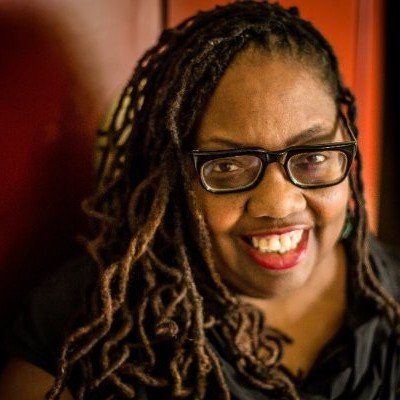Creating Inclusive Spaces: How Extreme Kids & Crew Empowers Children with Disabilities Through Community and Creativity
Overview
Extreme Kids & Crew (EKC) is a nonprofit organization that creates inclusive, judgment-free spaces for neurodivergent children and their families. Founded in 2009 by a frustrated mother searching for after-school programs for her son with disabilities, EKC has since become a vital resource for New Yorkers with disabilities. Through recreational and personal growth activities, the organization fosters an environment where youth can connect, thrive, and express themselves without limitations.
Led by Executive Director Lovisa Brown, EKC strives to uphold its mission of building brave spaces through play. Lovisa, an arts educator and advocate for marginalized communities, found a natural fit in the organization’s mission: “EKC embodies the passion that has driven my work for years. It’s about amplifying voices and creating spaces for those often overlooked.”
The challenge
Girls with autism spectrum disorder (ASD) face unique barriers. They are often diagnosed later than boys, and there are fewer programs designed to meet their specific needs. Girls with ASD tend to struggle with socialization and experience higher rates of anxiety and depression. These challenges only grow as they age, making adolescence particularly difficult.
Lovisa and her team recognized that many of their programs were inadvertently dominated by boys, leaving girls with fewer opportunities to connect with peers. “We had to ask ourselves—where are the girls, and why aren’t they participating?” Lovisa recalls.
The Solution
EKC launched a series of strength-based programs explicitly designed for femme-identifying youth to address this gap. One of the most successful was “Anime: Shoujo,” a program that leverages the popularity of anime to engage girls with autism in activities that promote social and emotional learning (SEL). The program centers on building peer relationships, teamwork, and problem-solving while reinforcing each girl’s self-worth.
Partnerships were crucial for the program’s success. EKC worked with the Center for All Abilities and the Brooklyn Public Library to establish clubs for girls to meet. These collaborations offered free meeting spaces and helped build connections with the community. As a result, the clubs were inclusive and provided language accessibility in Mandarin, Spanish, and English.
The Results
The impact of the girls’ programming has been profound. Through programs like “Anime: Shoujo” and others such as “Maker Girl” and “Glow Girls,” EKC has seen significant improvements in participants’ confidence and social skills. Girls are now more likely to express their needs, set boundaries, and explore new activities without fear of failure.
Parents have also noted the positive changes. Christie A., whose daughter participated in the program, shared: “My daughter came home happy after every session. She’s expressing herself more and getting more comfortable with her peers.” Another parent, Glennda M., said, “My daughter’s ability to tolerate social gatherings has grown immensely. She’s much more confident, and it’s reflected in her behavior at home.”
EKC’s success is measured through various metrics, including participant’s improvements in self-identity, self-efficacy, and social connection. Girls in the programs consistently demonstrate greater self-awareness, increased confidence in their abilities, and stronger connections with peers.
Looking Ahead
The positive outcomes of EKC’s programs have sparked interest in expanding the girls’ initiatives to more locations. The organization is working on replicating the success of “Anime: Shoujo” and other girls’ programs in additional libraries and community spaces across New York City.
For Lovisa, the biggest takeaway from this experience has been the importance of inclusivity and representation. “It’s not just about creating programs—it’s about making sure everyone has a seat at the table,” she says. She hopes to continue growing these programs and developing opportunities for older youth, particularly in job skills and vocational training.
EKC’s Maker Girls was recently named the 2024 New Champion. As part of the Educating All Learners Alliance (EALA) New Champions fund, this project will receive vital support to expand its impact on neurodivergent femme-identifying youth in Brooklyn and Manhattan’s Chinatown. This will enable the team to further its mission of fostering language inclusivity and community building through innovative programming. The funding will also allow EKC to develop new pathways for older youth, focusing on equipping them with essential job skills and vocational training opportunities.
Reflections
Key Takeways
The success of EKC’s programming for girls with autism underscores the importance of staying observant and inclusive in program development. By asking and listening to those most impacted, EKC has created a model that other organizations can replicate to support children with disabilities. The organization remains committed to evolving its approach and actively seeks new partnerships to expand its impact.
Future Vision
Looking ahead, Lovisa Brown envisions further refining EKC’s programs to develop job skills for older youth, ensuring that the organization’s work continues to grow and adapt to the needs of the communities it serves.
Big Takeaways
One-quarter of New Yorkers have a disability, and over 80% of students with disabilities in NYC identify as youth of color. These young people face substantial educational, employment, and social opportunity disparities. EKC’s work is a crucial step in bridging these gaps, but much more must be done. The organization invites others to join in this vital work, weaving together their efforts to create a stronger, more inclusive future for all.
About The Author
Lovisa Brown joined Extreme Kids & Crew as the new Executive Director in February 2023. She has 15 years of experience as an arts educator, specializing in empowering underserved youth through the arts and diaspora stories. Prior to this role, Lovisa served as the Senior Director of Education at the Museum of the African Diaspora and worked as an arts and education consultant in San Francisco and New York City.
